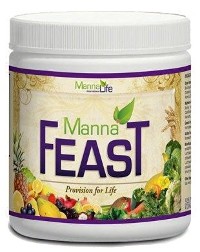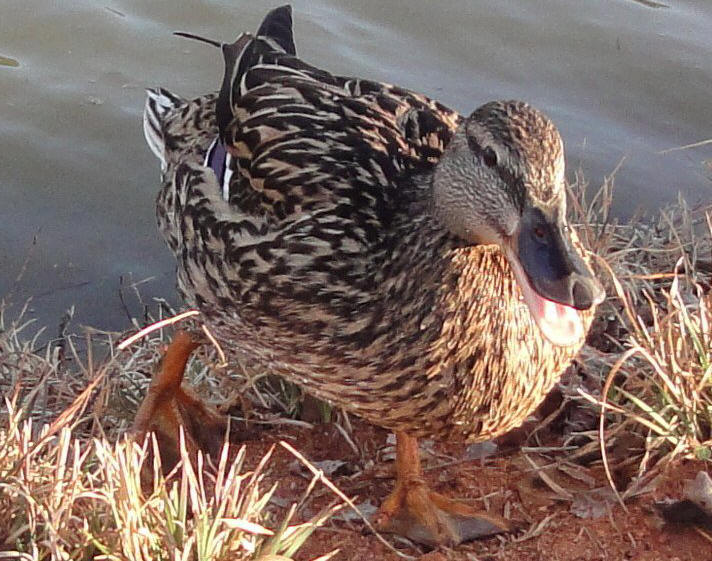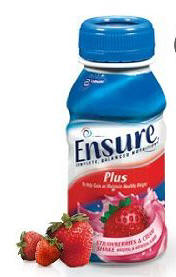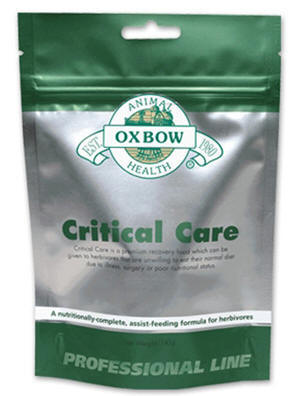Vet Bills Fundraiser
Vet bills and prescriptions for Young Matthew and Moon-Moon came to a total of $1734.81.
Thanks to your support and generosity we have raised $4843.33! This is absolutely phenomenal--we have NEVER seen anything like this before! We cannot express enough how relieving it was to not have to worry about covering vet bills during such a serious health crisis.
As many of you know, we lost Young Matthew; however, it was not due to a failure of trying or to a shortage of funds--and for this we are so very thankful to all of you who pitched in and helped. While we and his vets thought he had a good chance at pulling through, unfortunately his medication just didn't have enough time to work. Even so, it brings us great relief to know that we were able to provide him--and all of our ducks and geese, with the best medical options possible. Thank you...
On the up side, Moon-Moon is moving along very well in his recovery. Thankfully, the cyst removed from his upper, inner eyelid was benign in nature. He finished up all of his antibiotics and has a follow-up vet visit scheduled for March 7th.
We know times are very difficult and we would like to personally thank all of you who pitched in and helped out:
Jan, Tricia, Laura, Pastor Wanda (UMC), Susan F., Diane M., Marlys, Mary W., Alicia, John (Metzer Farms), Cynthia (Idaho Domestic Bird Rescue & Sanctuary), Susan R., Tanya & Tim, Roz, Kristen, Linda, Phyllis, Cathy, Susan P., Eva, Jenn, Scott & Kim, Andrew & Michael, Diane P., Karen, Kelly, Julie L., Lisa & Kevin, Mom & Dad, Mary G., Wendi, Melinda, Cristine, Christina, Donald, Jimmy, Deb & Tommy Knocker, M.A., Anne & Sofy, Melissa, John & Marie, Russ, Tom & Deb, Lisa & Matilda, Sharon, William & Kathleen & Smidge and Smidge's Army: Deirdre, Stacey & Brian, David & Anne and Robert.
Thank you for making this kind of quality vet care possible for our beloved rescues...
Young Matthew's Testosterone Overload
While high levels of testosterone in drakes and ganders often results in spring fever, an overload of this hormone can lead to serious health issues.
Too much testosterone can result in enlarged testes (inside your duck or goose), which can then result in phallus prolapse, which can lead to a disinterest in normal mating behaviors. Testosterone overload is NOT the only cause of prolapse in males, ALWAYS see a qualified avian veterinarian experienced with waterfowl for an expert opinion. Too much testosterone can also bring about excess thirst.
Young Matthew was given a digital x-ray and then an ultrasound to confirm testicular cancer was not at the center of the issue. Blood work ruled out an infection leaving testosterone fever as the conclusion.
To reduce testosterone, your drake or gander should be removed from the company of other flock members. Time away from competing males and tempting females will often help control hormone levels. This means not only out of sight of others, but out of hearing range as well.
During this time avoid setting up mirrors as a companion for your duck or goose. While it offers them companionship, it will raise their testosterone levels the same as another live bird.
As heartbreaking as it may be, you will need to avoid handling your duck or goose as much as possible during this time--especially if your pet is human-imprinted or else you can bring about the influx of more hormones.
Since increased daylight hours are part of nature's way of increasing testosterone in your bird, you may want to bring your pet into your house where you can limit their number of daylight hours. By all means do NOT keep them in the dark all day and night. Just shut out the lights an hour or two earlier at night.
Testosterone levels should drop within 3-5 days of implementation of counter measures. At this time, their phallus should naturally go back inside their body.
Slow introduction to handling, light and other flock members is the best way to avoid repeated flooding of hormones.
In stubborn or extreme cases, Lupron injections may be an option to explore, but they are very costly (approximately $300 each for a five pound duck) and may only offer slight improvement--making waiting-it-out the more commonly recommended solution.
Stomach Aches, Bacterial Infections & The Importance of Culturing
Young Matthew's age (10 years) and immune deficiency during his struggle with Testosterone Fever put him at risk for a bacterial infection, which completely robbed him of his appetite.
His phallus prolapse occurred only two days prior to him no longer eating. He also declined from laying down to rest and resorted to standing while slumbering. To give his legs a break, we gave him long daily swims in the tub followed by cozy bouts in front of the blow dryer.
We sustained him on a syringe diet on four 30 ml feedings a day spaced three hours apart. Normally ducks only get 90 mls a day, but Young Matthew was losing too much weight, so our vet prescribed a fourth feeding pushing him up to 120 mls a day, which really did the trick.
Young Matthew thrived on a diet of Ensure Plus (higher calorie, weight maintain/gain formula), Critical Care (prescribed by our vet), A/D canned dog food and Manna Feast. He was also given a general antibiotic as well as pain medication every twelve hours to keep him comfortable.
After exploring a number of other more probable possibilities, we provided a fecal sample for culturing and discovered that a bacterial infection was a second hidden culprit in his medical issues. Culturing provided the bacterial strain and sensitivity information, so that the appropriate antibiotics could be prescribed, but unfortunately, Young Matthew lost his battle before they could take full effect.
It's likely that Young Matthew's weakened immunity due to his age and testosterone overload issues made him susceptible to natural bacteria. Part of our endeavor, painful as it may be, is that we are always learning new things. This time around we learned that more obvious medical conditions sometimes mask less obvious medical conditions occurring simultaneously. And what we learn, we pass on to you in the hopes it may save one of your flock members one day and spare you our heartache:
When loss of appetite or stomach pain is a symptom, we highly recommend having a fecal bacterial culture done very early on.
Symptoms of bacterial infection may include: behavioral changes, disinterest in normal activities, weakness, lethargy, nausea, vomiting, loss of appetite, weight loss and diarrhea.
Remember, the culture needs time to grow and then further time is required to discover the bacteria's sensitivity; that is, what type of antibiotic the strain is vulnerable to.
Young Matthew was heavily sedated and kept very comfortable during his final hours when euthanasia was sought out. His ashes have since returned to our sanctuary where he resides in peace.
Avoiding Fencing Injuries
Ahh... spring... Oddly enough, Valentines Day commonly sparks the season of love for ducks and geese. Ganders get a little more aggressive about protecting their mates and drakes begin to argue amongst each other.
Spring is often the time of year when drakes need to be separated from one another--and sometimes (if too overzealous) from their lady friends to prevent over-mating.
While geese tend to be more family orientated and usually work out their boundaries, drakes don't normally come to an agreement so easily.
Even in a large pen with hiding places, drakes will often chase other drakes incessantly. This type of running can lead to stumbling accidents that may result in injuries like sprains or breaks. Furthermore, an alpha drake can easily keep subordinate males from getting to their food and water sources. Multiple food and water sources can help, but in the instance of a dominating leader, they may not. It is vital to keep your eye out for this type of behavior, which can lead to stress, injury, emaciation and dehydration.
The best thing to do in this type of situations is to separate your boys. You can either move drakes to separate enclosures or you can put up a dividing fence between them.
Pens designed with separate compartments and gates that can be opened or closed seasonally is the most efficient and convenient method of separating drakes.
Some owners will opt for a quick-fix solution and put up a temporary dividing fence between their boys. When doing this, be absolutely certain that they can't fit their bills in between the wire's weave. When ducks (and geese) fight through a fence with gaps that are too large, they can get overzealous and push (or be pulled) through the openings. When this happens their their necks and heads can become trapped. They can similarly get their bills caught in the holes of chicken wire. These types of accidents can result in serious injury and sometimes even death.

Bills can get stuck in chicken wire
If you do want to put together a quick dividing fencing use a material like vinyl-coated, welded wire mesh with either a half inch or quarter inch tight weave. The higher the gauge, the smaller the wire, so a 21 or 23 gauge mesh is often sufficient between drakes (lower gauge wire is thicker and serves as a better perimeter fencing choice against predators). If you can't find this type of wire fencing locally, Louis E. Page is a great resource and they will send samples if you want to compare different gauges and weave sizes.
Once you have your wire, you can temporarily string it up in your pen to separate your boys using something as simple as zip-ties. Just be sure it is tight to the ground and boys can't poke their heads underneath and get stuck.
1/2" or 1/4" wire mesh prevents injuries
Using portable playpens is another way to separate fighting males, but use caution to avoid serious and even fatal injuries.
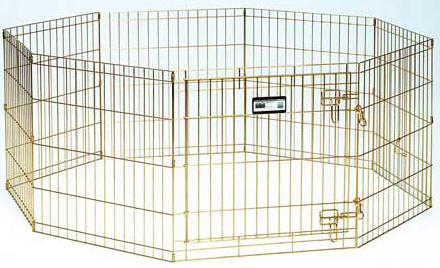
Necks, heads and bills can easily get stuck
in portable playpens
If you want to use portable playpens, double them up. In other words, run two fences parallel to each other with a space of at least two feet between them. This prevents drakes from actually connecting with each other and pulling each other through the weave.
Double-up fencing, leaving a gap in between,
to prevent injuries
Another option is to zip-tie mesh over your dividing fencing to reduce the size of the gaps and make it safe.
Chain link fencing can be fixed to be made
safe



